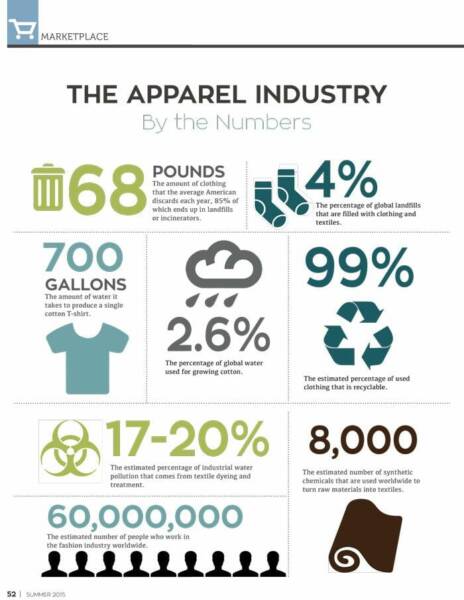Society has been changing, and with it, sustainability and fashion Cities too. In recent years, the fashion industry has changed tremendously, driven by trends of instant gratification. While in the past consumers were interested in labels and quality, now it is more likely that the price of such items will be off putting to consumers. This has driven a desire for fashionable items to be available quickly. The time from the catwalk to styles appearing in fashion retailers has dropped considerably. This trend intensified during the first decade of the 21st century. The result has been retailers that are focused on a very fast manufacturing speed so that items can be in the shops quickly, to please consumers. While this trend, known as “fast fashion” has been very beneficial for consumers, it is questionable whether it can be sustainable.

Reports have increasingly been showing that fast fashion has problems with sustainability. The impacts have been felt in particular on the quality of water, as well as in terms of waste. Consumers are increasingly becoming aware that fashion is damaging the environment. In particular, the dyeing of textiles in the production of apparel is known to be the second biggest polluter of water worldwide, second only to agriculture. Some of the toxins are carcinogenic in this process. Additionally, the increased production of polyester has led to an increase of microfibres passing from washing machines and eventually ending up in seas worldwide.
These microfibres cannot biodegrade and they impact negatively on marine life. They also get into our own food chain, as fish end up eating them, and when we eat fish they are passed into our systems. There are also problems with pesticides that are used on crops that go into the production of fashion items. Finally, waste is also a major problem, as trends in the fashion industry have resulted in an idea that clothes do not need to be kept or worn as long as in the past. Indeed, industry research has shown that more than 50% of fast fashion apparel purchased is binned in less than 12 months.
Negative Impact on the Fashion Industry Environment
While the fashion industry is doubtless having a negative impact on the environment overall, it is starting to wake up to these problems. Industry leaders are aware that while consumers are not calling for change at the moment, they are likely to do so in the very near future – and that time may only be a year or two away. This has led to the industry starting to consider more what it is doing, and some major players starting to look at how to build in an increased level of sustainability.
Paris, Leading Cities of the Fashion Industry
Paris, one of the leading cities of the fashion industry is leading the way in this regard. Recently, Paris has announced its plans to become the sustainable capital of fashion by the year 2024. Specifically, the five year plan that it has put in place is called “Paris Good Fashion” and it is trying to encourage major industry players to move more towards eco-friendly practices. The work is based around the idea of an open community that brings together various experts in the field, along with professionals, brands and designers to develop a detailed plan of the steps that need to be taken to achieve the lofty goal. A roadmap for Paris to become the sustainable capital of fashion is currently under production, with a goal of launching this in June. The plan emphasises the circular economy, looking at areas such as sourcing and traceability. It focuses on ways in which distribution and energy use can become more sustainable in this industry.
Olympic Games in Paris 2024
It is hoped that by introducing such a plan, a new way forward can be developed for fashion. Within a five year timeframe this is not unrealistic. It is not insignificant that the year of completion of the plan has been proposed as 2024. This is a big year for Paris, as it will also be hosting the Olympic Games in 2024. There is no doubt that the fashion industry must become more sustainable, in order to protect our Earth. Hopefully, by Paris becoming the self-named sustainable capital of fashion, other industry players will sit up and take note, starting to take the problem more seriously.

Ingrid Maldine is a business writer, editor and management consultant with extensive experience writing and consulting for both start-ups and long established companies. She has ten years management and leadership experience gained at BSkyB in London and Viva Travel Guides in Quito, Ecuador, giving her a depth of insight into innovation in international business. With an MBA from the University of Hull and many years of experience running her own business consultancy, Ingrid’s background allows her to connect with a diverse range of clients, including cutting edge technology and web-based start-ups but also multinationals in need of assistance. Ingrid has played a defining role in shaping organizational strategy for a wide range of different organizations, including for-profit, NGOs and charities. Ingrid has also served on the Board of Directors for the South American Explorers Club in Quito, Ecuador.








































